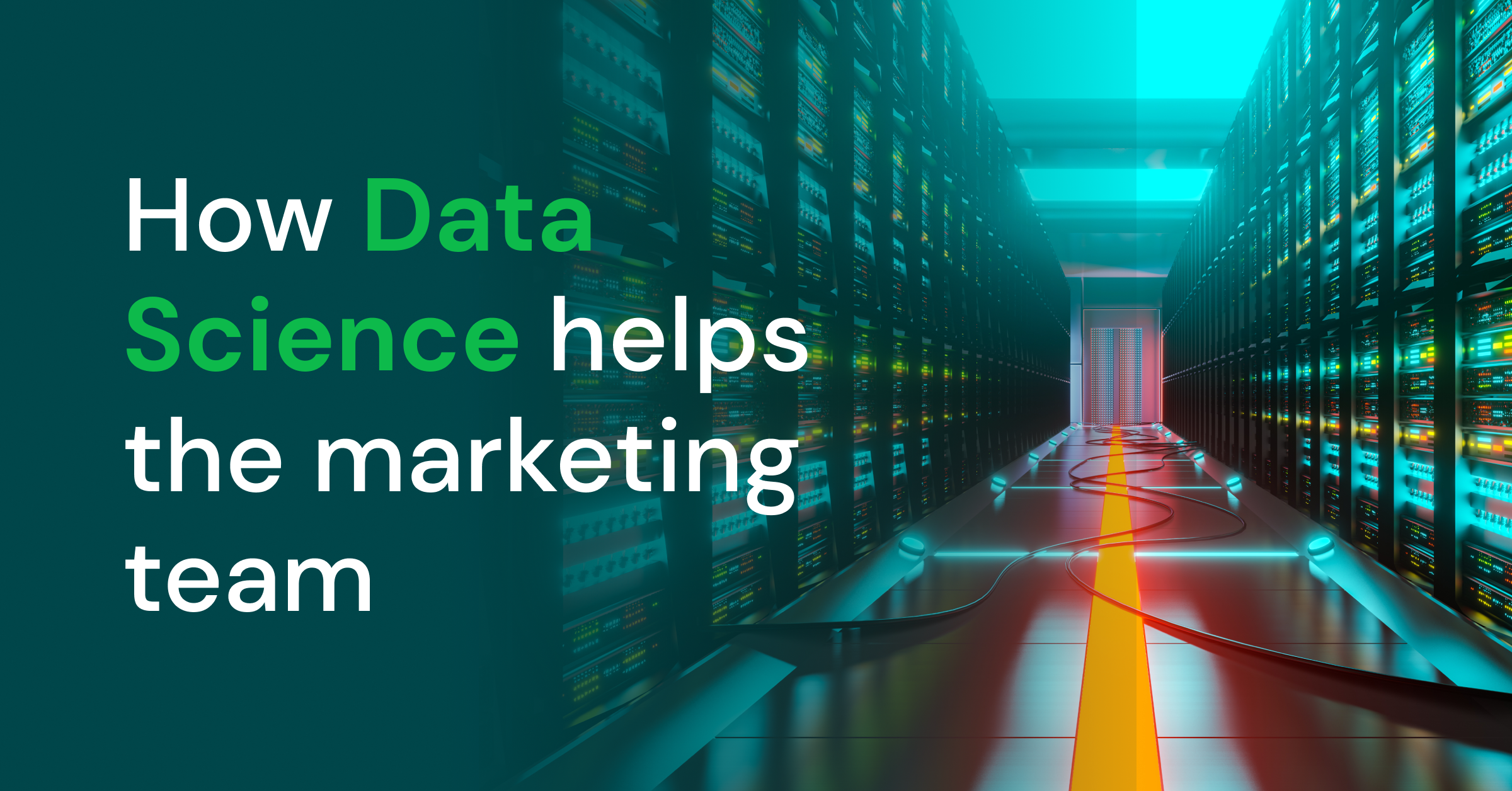
12 Unique Ways How Data Science Helps Marketing Teams?
Jan 16, 2025 6 Min Read 3724 Views
(Last Updated)
Which marketing strategies work? What new methods make a crash? How can the creative domain of marketing shape up into a scientific research domain with data science methods like machine learning, clustering, and regression? When you find answers to these questions, you also get to make a standout presence in the marketing business. So, let’s learn how data science helps marketing teams?
Do you know that the tech giants like Netflix, Google, Facebook, etc., implement experimentation models to understand how their audiences are responding to new marketing strategies?
Mckinsey’s research found that businesses using data to fuel marketing decisions can increase client acquisition by 23 times while improving customer retention by 6 times. Moreover, there can be a 19 times increase in profitability, too.
And that is the same way, how the top companies use the scientific approach to drive their marketing campaign strategies, generating much higher resilience, ROI and rapid growth.
Let us see the applications of Data Science in Marketing with examples.
Table of contents
- How data science helps marketing teams?
- 12 Applications of Data Science in Marketing:
- Marketing Budget:
- Channel Optimization:
- Search Engine Optimization:
- Matching marketing strategies with customer preferences
- Customer Retention and Loyalty:
- Sentiment Analysis:
- Customer Segmentation, Clustering, & Full Funnel Optimization:
- Affinity Analysis:
- Recommendation Engines
- Lead Targeting and Scoring
- Real-time Analytics & interaction
- Email marketing:
- Let's wrap it!
- FAQs on How data science helps marketing teams
- How data science is helpful in the digital marketing industry?
- Does marketing involve data science?
- Can a marketer become a data scientist?
- How do I become a marketing data scientist?
How data science helps marketing teams?
Let’s, for example, check Preeti’s business strategies and workarounds. Preeti is a beautician earning her bread and butter through her small parlour, ” Beauty Palace”. Though, at an easily accessible piece of land, Beauty Palace was missing the expected number of clients. Word of mouth was once the only means of her advertisement.
Then came Reena, Preeti’s friend and a Data Scientist. Reena quickly understood why Preeti’s business was not giving the expected response.
Reena devised some strategies, implored certain algorithms and pumped out some marketing campaigns. She explored the client list and plausible audience, their interests, frequency of returns, time of the day, etc. Her algorithms span the gap in days! & Boom!
Beauty Palace attracted the maximum number of customers within a month, and Preeti’s services went viral all over the place.
Now, this is just a random example where Data Science worked wonders. But, we can expect this boom in all the small and big businesses equally.
So, what strategies or algorithms can you pitch in to make your business hit the loud thud that you are long waiting for?
Check below for the strategies: How data science helps marketing teams?
Before we move into the next section, ensure you have a good grip on data science essentials like Python, MongoDB, Pandas, NumPy, Tableau & PowerBI Data Methods. If you are looking for a detailed course on Data Science, you can join GUVI’s Data Science Course with Placement Assistance. You’ll also learn about the trending tools and technologies and work on some real-time projects.
Alternatively, if you would like to explore Digital Marketing through a Self-paced course, try GUVI’s Foundations of Digital Marketing Course.
12 Applications of Data Science in Marketing:
1. Marketing Budget:
Allocating advertising budgets is very crucial. Multiple Performance indicators help in determining how, where, & when to invest advertising budgets. Data Scientists use algorithms & data mining techniques which automatically determine whether the campaign ROI is positive or negative.

The key is to allot money appropriately to respective channels that maximize revenue without wasting money.
Now, you might wonder how Data Scientists can pitch in here for the Marketing budget. Simple! By analyzing a marketer’s spending and purchase data, data scientists can design a spending model to help utilize the budget better.
A spending model/ budget model can help marketers disseminate their budget across locations, channels, mediums, and campaigns to optimize their key metrics.
2. Channel Optimization:
You can leverage your existing distribution channels by identifying how customers access your products and services. It will reduce the effort it takes for your customers to do business and improve the customer experience.
Using Data Science methods like market basket analysis, you can very well track down the best target customers. It can increase interactions, and drive incremental revenue within a single marketing channel. Even cross-channel optimization can achieve a huge impact.
To optimize a marketing channel, you should start by setting individual goals for each funnel stage and set up specific tactics to sustain these goals within the channel. From there, you can collect, analyze, and apply data to improve your channel performance.
3. Search Engine Optimization:
Another way: How data science helps marketing teams. If you have ever tried searching: How can I get statistics for free? Then, you would know that there are several tools freely available that can help you do your SEO better.
A website gains unpaid “organic” traffic from Search Engine Optimization otherwise known as SEO. It is the practice of increasing both the quality and quantity of website traffic as well as exposure to your brand.
“Data science focuses on eliminating guesswork from SEO. Rather than presuming what works and how a specific action affects your goals, use data science to know what’s bringing you the desired results and how you’re able to quantify your success. Brands like Airbnb are already doing it and so can you.”
— SearchEngineWatch
Tools like Ahrefs, Google Search Console, SEMRush, etc. can give you 3X growth by doing your SEO.
4. Matching marketing strategies with customer preferences
Do you know why major e-commerce brands offer multiple sales? The main goal of such activities is to understand people’s shopping behaviours during mega-sale events.
By comprehending how people shop and what influences their purchase decisions, brands can better provide for their needs and simultaneously gain trust. Attracting customer attention and affection during upcoming sales is the best they accomplish!
How do they achieve it? Here’s one example: the new goal-based Google Ads campaign type, powered by machine learning, encourages the brands to automatically locate new customers at scale across channels such as Search, Shopping, YouTube, and Gmail. Interesting? It also enables the brand to optimize performance in real-time toward sales conversion.
5. Customer Retention and Loyalty:
Price, site performance, customer satisfaction, good delivery, saved payment details, etc., are some of the crucial parameters that help customer retention.

Customer retention is your capacity to sell to your (already) customers. Now, it is a unique metric as it accounts for your ability to turn new customers into repeat customers. And Data science can help marketers improve marketing to existing customers and thus boost their loyalty.
Again, loyal customers are those who help in sustaining a business. Retention Metrics can help us gain more loyal customers.
Also find out: Top 7 Data Science Applications & Use Cases For Powerful Businesses
6. Sentiment Analysis:
Sentiment analysis or opinion mining is a Natural Language Processing(NLP). It identifies the emotional tone behind a body of text. This technique is used to determine whether data is positive, negative or neutral.
7. Customer Segmentation, Clustering, & Full Funnel Optimization:
Customer segmentation helps in determining market opportunities by tailor-made marketing initiatives. It delivers proper product development and design insights along with appropriate pricing model insights.
Segmentation is the process of grouping or clustering customers into groups based on different characteristics. Demographic, psychographic, behavioural and geographic segmentation are the 4 main types of market segmentation.
Instead of grouping people like in segmentation, clustering simply identifies what people do most of the time. Clustering allows us to predict what customers are likely to do without boxing them into rigid groups. Violin plots, displots, etc., help in visualizing the distribution of numerical data.
On a broader aspect, Awareness, acquisition, activation, retention, revenue, and referral are all the various parameters of the full funnel. To achieve full-funnel optimization, marketers have to implement machine learning, artificial intelligence, and data science too. By implementing data science nights growth marketers can target longer customer relationships.
Tools including data quality tools, customer data validation, etc. can help in data segmentation and clustering.
For more on How data science helps marketing teams keep reading.
8. Affinity Analysis:
Now, what is Affinity analysis? Affinity Analysis is a predictive analysis technique that falls under the umbrella term of data mining. It uncovers meaningful correlations between different entities according to their co-occurrence in a data set.
Applying affinity analysis can pull surprising insights into the unexpected trends in almost all systems and processes. This process allows you to organize facts, opinions, and issues. It in turn helps in identifying problems and pinpointing common issues.
9. Recommendation Engines
Some of the biggest brands like Netflix, Amazon, Google, etc., that we engage with every day are built around recommendation engines. Do you know that 35% of Amazon purchases come from product recommendations?

A recommendation engine is a data filtering tool incorporating machine learning algorithms to recommend the most relevant items to a particular user or customer. It works on the technique of finding patterns in consumer behaviour data.
Collaborative filtering, Content-based filtering, hybrid mode, etc., are the various types of recommendation engines.
10. Lead Targeting and Scoring
Data Science helps in narrowing down the target leads. We can then closely follow their online behaviour and intent. Their historical data can explain their marketing interests to the marketers, who can determine their business requirements and the type of brands they liked in past years.
Again, every lead might not convert into a customer.
What Data science does is: enables marketers to build a predictive lead scoring system. It can segregate the leads into eager customers, interested prospects, and not interested customers. It is an algorithm capable of calculating the possibility of conversion and segmenting the lead list.
11. Real-time Analytics & interaction
Real-time analytics authorises businesses to react without delay. It is like you receive insights and immediately you get to draw conclusions on the same.
12. Email marketing:
Every business will relate to this. Email marketing. Data Science can help generate insights into the purchase interest of potential or current customers. Information on what the customers like to buy when they would possibly shop, what and when they would make the next purchase and likewise.
Find out How data science helps marketing teams?
E-commerce sites also use data science to forge targeted emails. Such emails can carry product suggestions or new product releases that cater to a customer’s unique style. These are more promotional emails that can sell your product through words.
So, these are some of the ways How data science helps marketing teams? Further, let’s see some real-time applications of data science in Marketing.
- Big sports brands like Adidas, Nike, Puma, Reebok, etc., personalize their products according to gender, sex, attitudes, behaviours, demographics, etc., Via email marketing or promotional advertisements they retain their current customers while also attracting potential customers in the process.
- Online marketplaces like Airbnb connect people working on some similar Data Science lines. Airbnb utilizes recommendation engines that employ artificial intelligence and predictive analytics to suggest hotels for travellers visiting a new city. Based on factors like prior stays, facilities, and location, as well as amenities and location, the recommendation tool helps customers find the ideal space per their preferences.
- The top global streaming service Netflix is another giant incorporating Data Science in multiple facets of its functioning. By tracing watch history, search queries, and time spent watching a show, Netflix collects data, which in turn is used to provide interest-based data recommendations to existing customers. Well, you will rarely meet a non-customer of Netflix, you see!
Let’s wrap it!
Now, that we have seen how data science helps marketing teams; are you willing to pursue your data science journey?
Kickstart your Data Science journey by enrolling in GUVI’s Data Science Course where you will master technologies like MongoDB, Tableau, PowerBI, Pandas, etc., and build interesting real-life projects.
Alternatively, if you would like to explore Digital Marketing through a Self-paced course, try GUVI’s Foundations of Digital Marketing Course.
FAQs on How data science helps marketing teams
1. How data science is helpful in the digital marketing industry?
Ans. The best use cases of data science in digital marketing include optimizing different marketing channels and budgets, customer segmentation, market analysis, real-time and predictive analysis of customer behaviour, email marketing, curating personalised customer experience, etc.
2. Does marketing involve data science?
Yes, in a plethora of beneficial ways. Refer to the blog to view the answer.
3. Can a marketer become a data scientist?
Ans. Yes! Marketers can go ahead and become Marketing Data Scientists. They can uncover data to expose meaningful insights, trends, and patterns.
4. How do I become a marketing data scientist?
Ans. Well, after knowing How data science helps marketing teams, you might be keen to start a career as a marketing data scientist. So, find out what job roles, skills and educational backgrounds are required for the same:
Job Role of a Marketing Data Scientist:
- Generate prescriptive insights – tactical and strategic insights to improve marketing effectiveness
- Exploratory data analysis
- Metric and method selection
- A/B testing
- Advising, training, and assisting management and other professionals in working with and understanding organizational data
Required Skills of a Marketing Data Scientist:
- SQL
- Data visualization (Tableau, D3.js, etc.)
- Machine learning in Python or R
- Great “people skills” – to collaborate with data engineers, business management, and other support personnel
Educational and Professional Background of a Marketing Data Scientist:
- A university degree in a quantitative field of study
- Internet marketing experience
- Business analytics experience
So, that was about- How data science helps marketing teams? For queries and suggestions, please stick to the comment section below. We look forward to hearing from you.















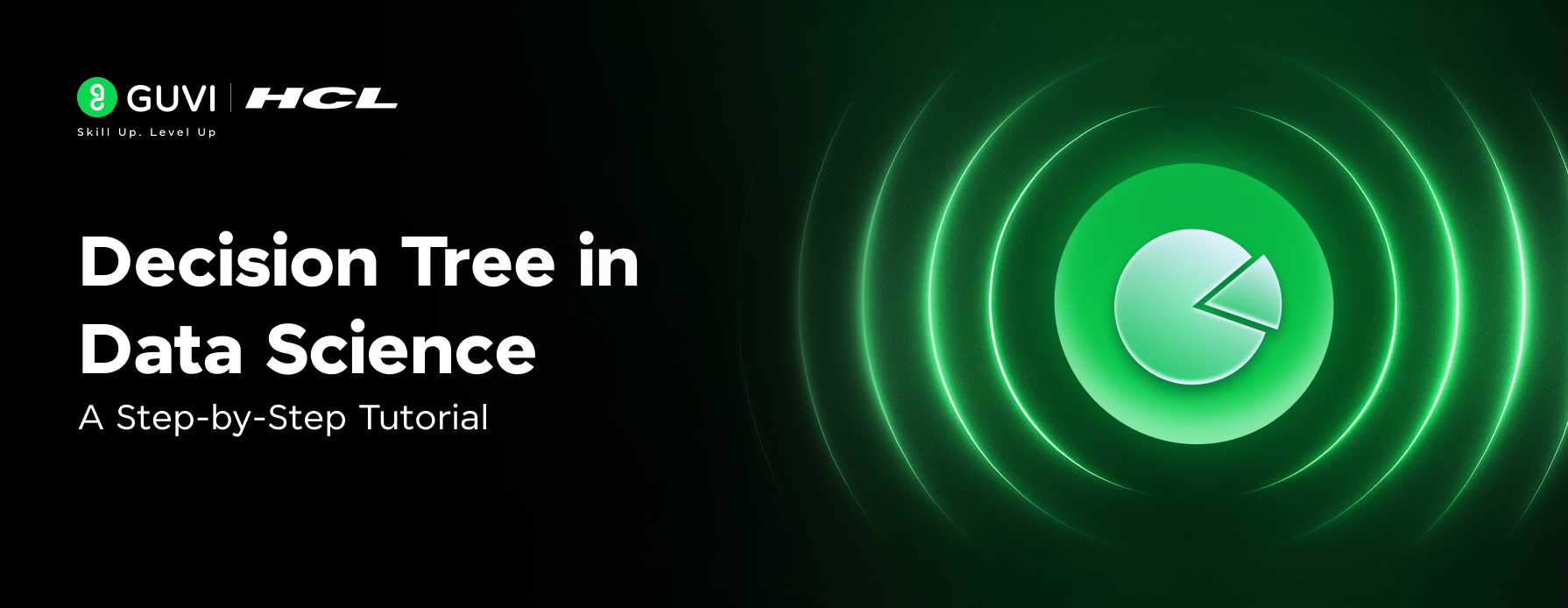
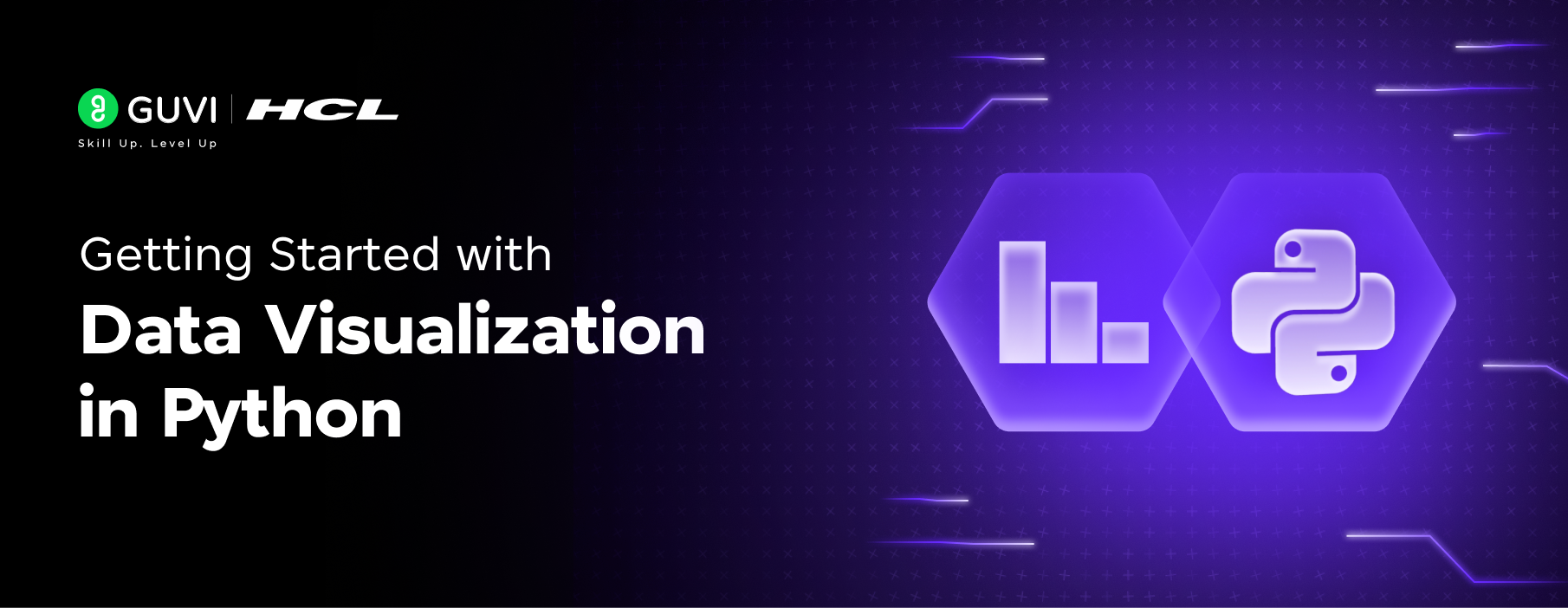
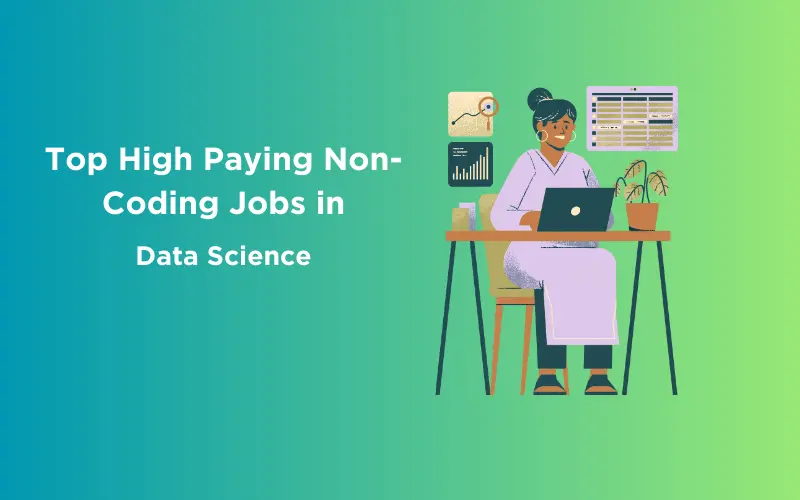
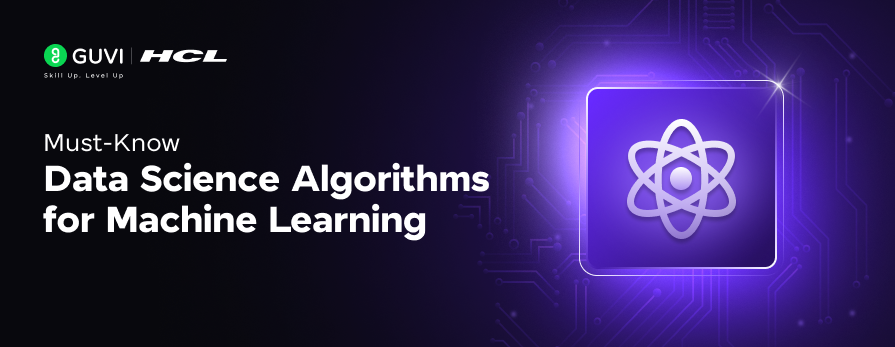
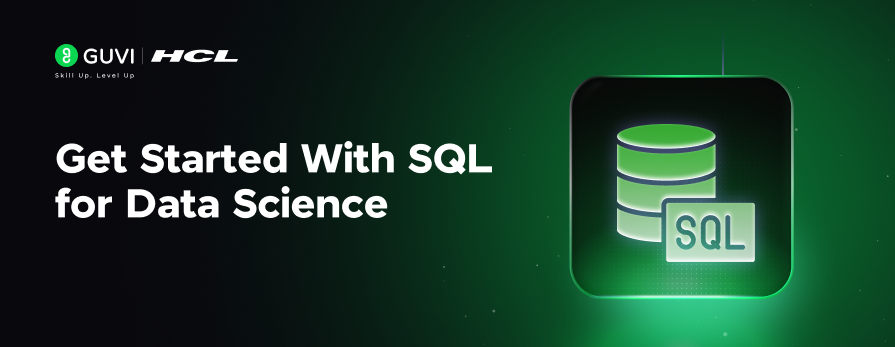
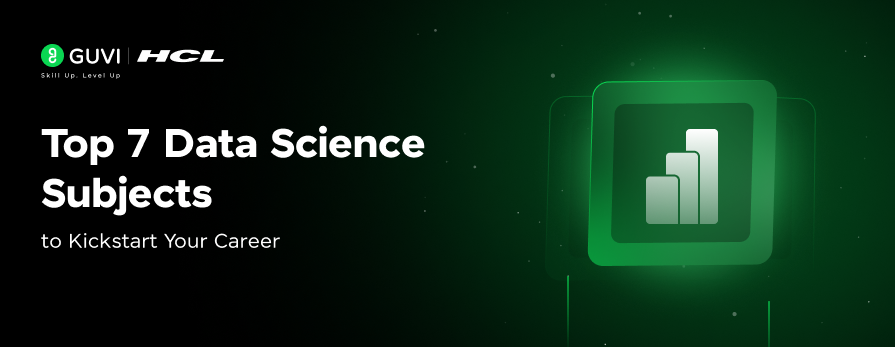
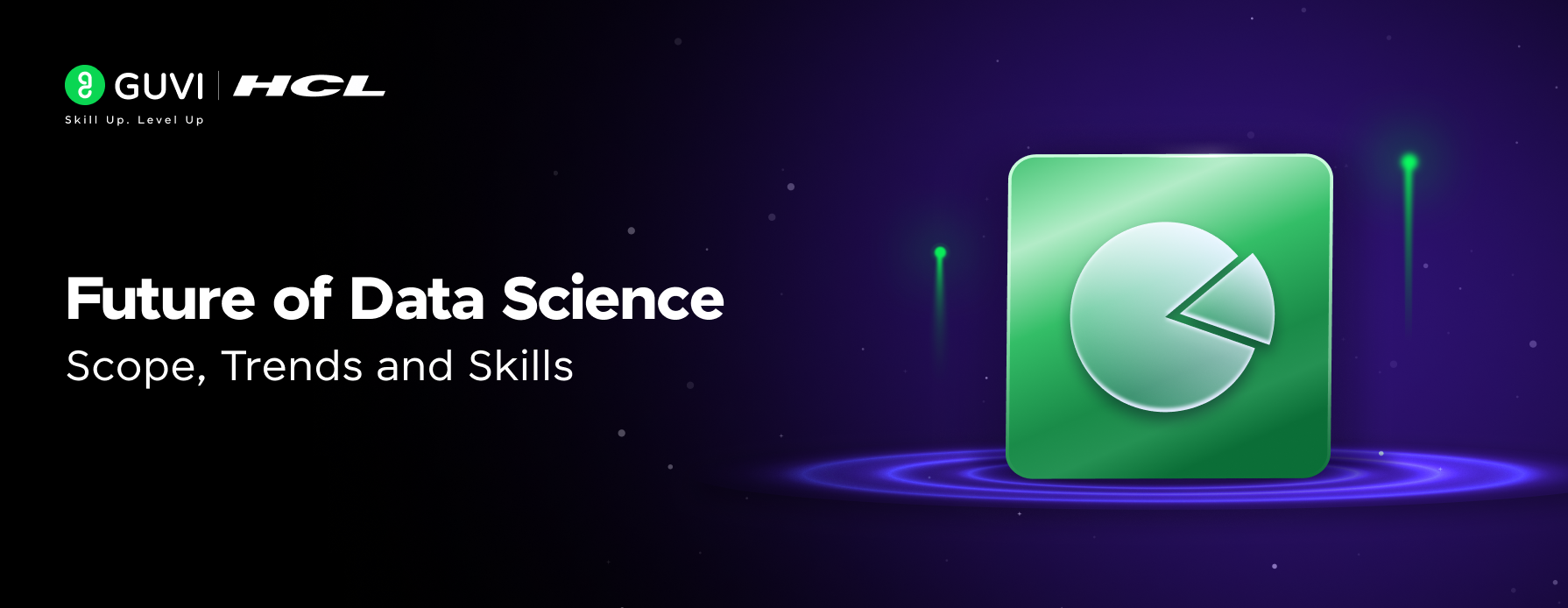
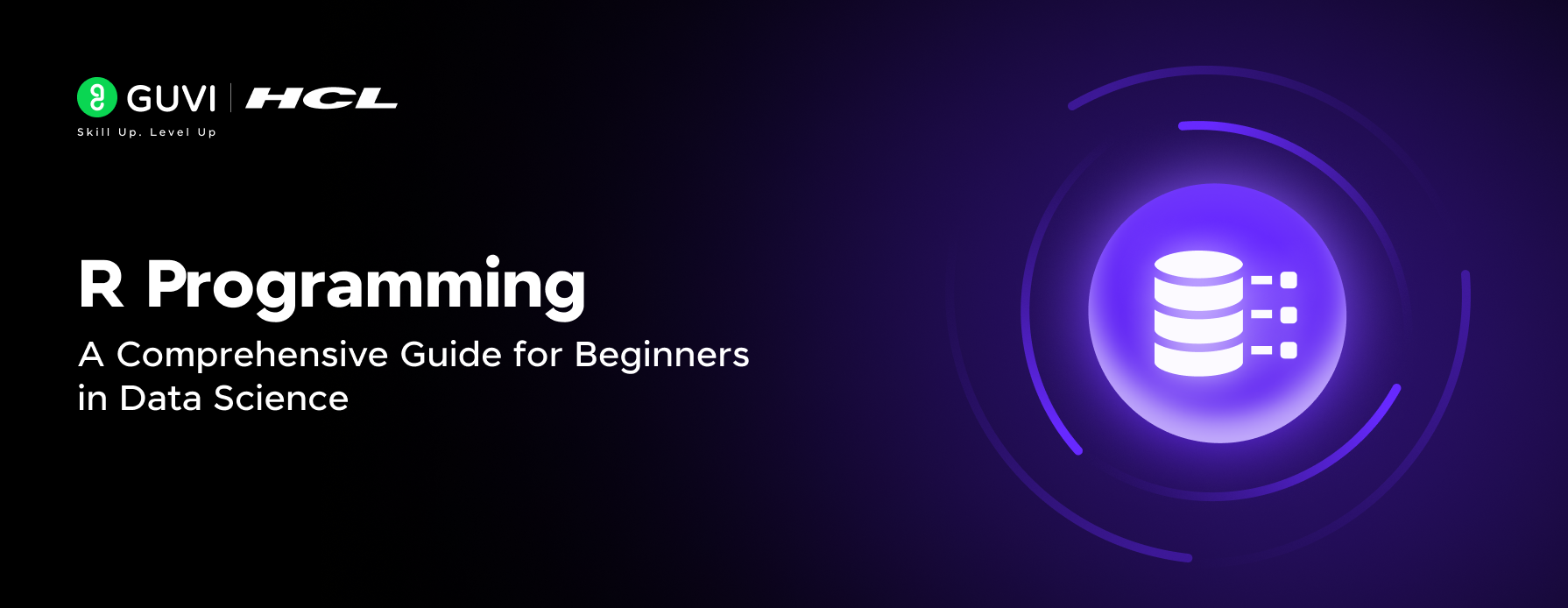
![What is the Difference Between BI and Data Science? [2025 Beginner's Guide] 13 difference between bi and data science](https://www.guvi.in/blog/wp-content/uploads/2025/06/Difference-Between-BI-and-Data-Science_.png)

Did you enjoy this article?